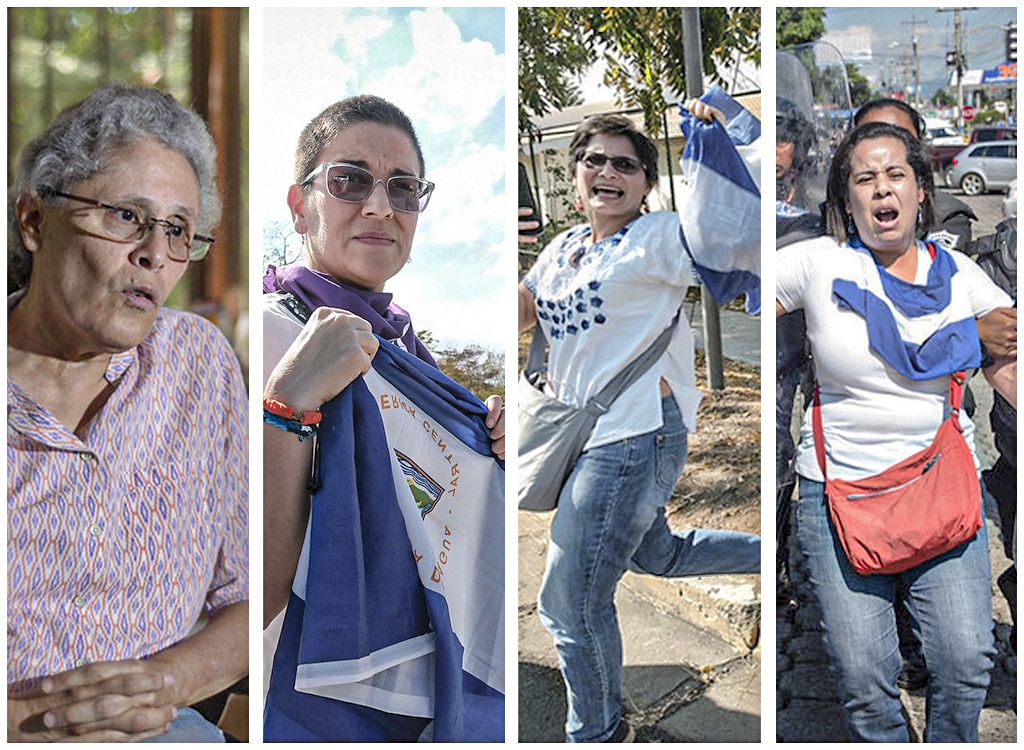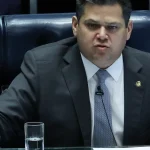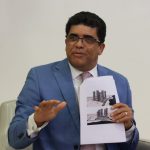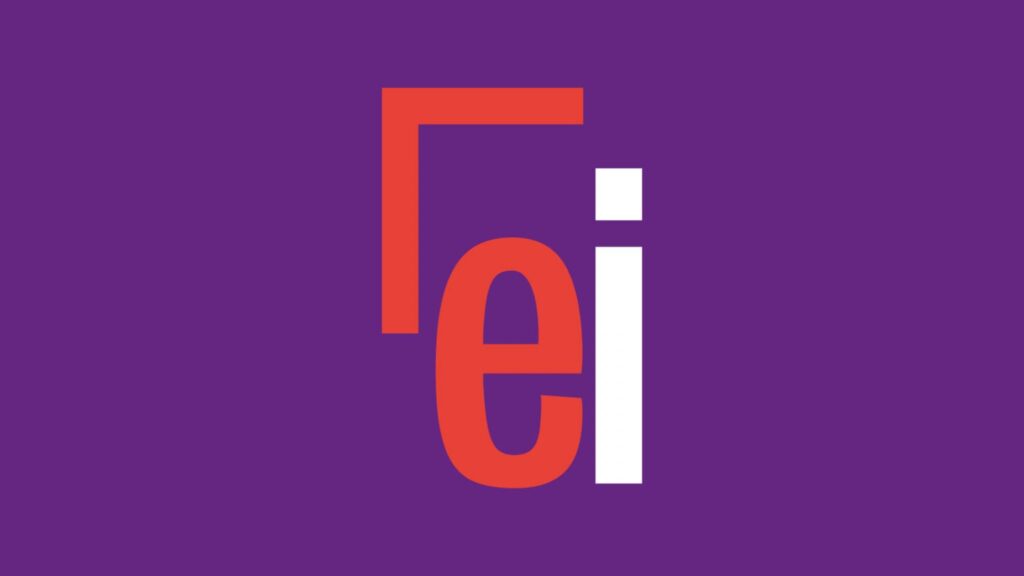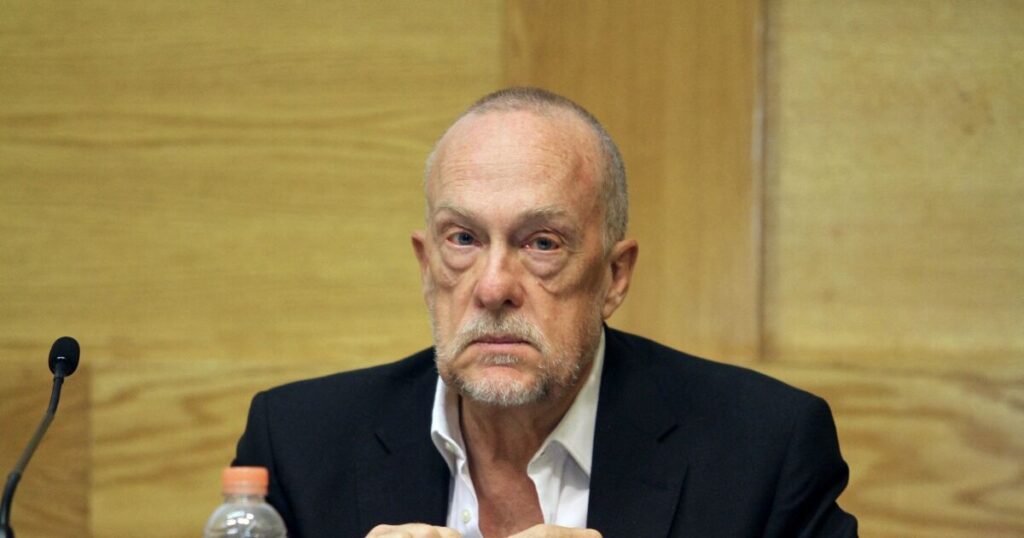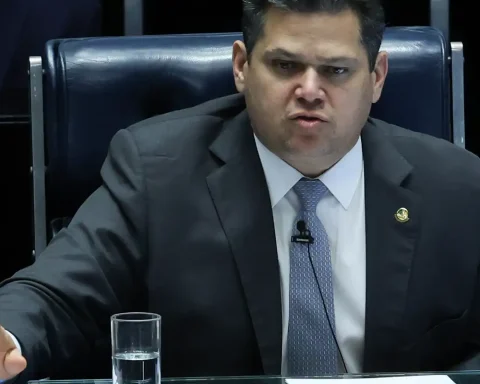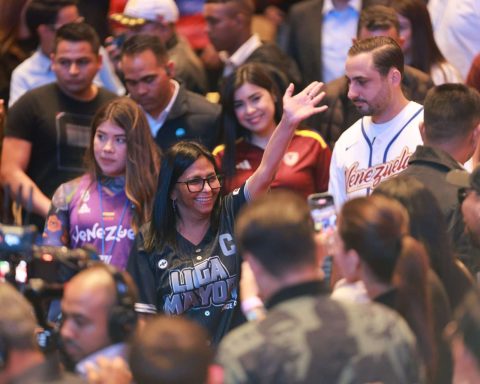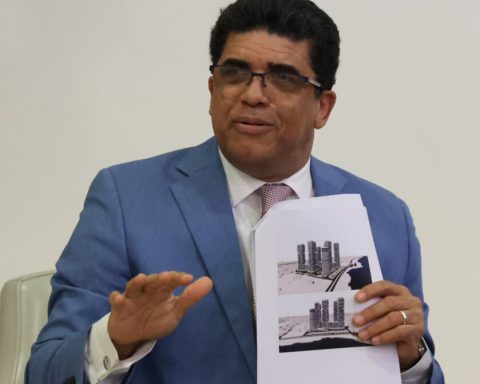Isolated in a sealed cell where she can barely breathe, political prisoner Tamara Dávila is serving her first year in prison this Sunday. Since June 12, 2021, when she was captured by the Police of the Daniel Ortega regime, she has been a victim of torture, cruel and degrading treatment, and her only contact with the world has been the eight family visits she has received under heavy measures. of security.
Like Tamara, the political prisoners and leaders of the Renovating Democratic Union (Unamos), Dora María Téllez, Suyen Barahona and Ana Margarita Vijil, arrive this Monday at his first year in prison. The first of eight, in the case of Téllez and Barahona, and 12, in the case of Vijil, which were imposed on them by the Ortega justice for the alleged commission of the crime of conspiracy to undermine national integrity. Tamara was sentenced to 13 years in prison.
Also, the former Sandinista guerrilla and deputy foreign minister in the eighties, Víctor Hugo Tinoco, celebrates this June 13 his first year deprived of liberty for political reasons. But, like ten other prisoners of conscience, his delicate state of health forced the regime to change the precautionary measure from preventive detention to home for jail.
Another Unamos leader who was captured a year ago was retired Brigadier General Hugo Torres, who died in prison on February 12, 2022.
Relatives of the political prisoners maintain the constant demand that they be allowed to see their relatives, which is why the Ortega regime finally agreed this weekend to an eighth visit to the El Chipote prison. In this new meeting, the relatives once again verify the precarious conditions in which the prisoners of conscience captured in the context of the general votes of 2021, in which Ortega was re-elected without political competition in an illegitimate process.
Days ago the political prisoners: Marcos Fletes, Walter Gómez, Cristiana Chamorro Barrios, Arturo Cruz Sequeira, Félix Maradiaga, Juan Sebastián Chamorro, Violeta Granera, José Adán Aguerri and José Pallais, also served a year in prison.
Inter-American Court ordered the release of nine political prisoners
The Ortega regime keeps more than 180 people imprisoned for political reasons in the different prisons of the country. National and international organizations have demanded the freedom of each of these. The Inter-American Court of Human Rights (CorteIDH) ordered this Monday the “immediate release” of nine political prisoners in Nicaragua.
Among the beneficiaries of the provisional measures are: the president of the Superior Council of Private Enterprise (COSEP), Michael Healy Lacayo, and the vice president of that organization, Álvaro Vargas, as well as peasant leaders Medardo Mairena Sequeira and Pedro Mena Amador.
Jaime Arellano, Miguel Mendoza, Mauricio José Díaz, Max Jerez and Edgar Parrales were also included.
The arrests and criminal proceedings initiated against these people “are part of a context of harassment of those who demonstrate in opposition to the policies of the current Government of Nicaragua, which has been exacerbated due to the elections that took place in November 2021 ”, states the resolution.
The Inter-American Court also ordered the State to “proceed to unequivocally inform his relatives and trusted lawyers about his place of detention, to facilitate his immediate contact with relatives and lawyers, at least once a week, and to guarantee access immediate access to health services and medicines for the beneficiaries”.
Months ago, the Inter-American Court also granted this type of provisional measures to former presidential candidate Cristiana Chamorro Barrios; her brother and opposition politician Pedro Joaquín Chamorro Barrios; former employees of the Violeta Barrios de Chamorro Foundation, Walter Gómez, Marcos Fletes and Pedro Vásquez; the academic and former diplomat Arturo Cruz Sequeira and the banker Luis Rivas Anduray.
In addition, Miguel Mora Barberena, Dora María Téllez, Ana Margarita Vijil, Suyen Barahona, Víctor Hugo Tinoco, José Pallais, Juan Sebastián Chamorro, Félix Maradiaga, both former presidential candidates, as well as José Adán Aguerri, Violeta Granera, Tamara Dávila, Lesther Alemán and Freddy Navas.
Determine crimes against humanity
The teacher in Human Rights, Uriel Pineda, valued in his opinion article “The case of Juan Sebastián Chamorro et al. Nicaragua”which —if the incarceration persists— for the coming months will possibly increase the number of political prisoners that make up this case of the Inter-American Court.
In Pineda’s opinion, the Inter-American Commission on Human Rights (IACHR) “revealed its theory of the case” in the report “Nicaragua: Concentration of power and weakening of the rule of law” of October 25, 2021, since in the paragraph 175, suggests the existence of crimes against humanity in the electoral context. “The IACHR is going for nothing more and nothing less, that the Inter-American Court determines that the human rights violations committed in Nicaragua against these political prisoners are presented in the context of the commission of crimes against humanity,” he stressed.
If things continue as they are today, the Inter-American Court will determine the violation of: the right of access to justice; to effective judicial protection; due process; to personal freedom; to personal integrity (presumed torture); political participation; freedom of expression; judicial independence; rights of persons deprived of liberty; and the right of women to a life free of violence, among others.
Demand for freedom was heard at the Summit of the Americas
The demand for freedom for political prisoners also resounded this week in the IX Summit of the Americaswhich was held in Los Angeles, California, USA. The president of Chile, Gabriel Boric, advocated in the plenary of the Summit for “the urgent need to free the political prisoners of Nicaragua”.
Members of civil society and relatives of prisoners of conscience took advantage of the meeting of the presidents of the region to denounce the arbitrary confinement of their relatives, as well as the deepening of the crisis and repression in Nicaragua.
Victoria Cárdenas, wife of political prisoner Juan Sebastián Chamorro, who participated in several events parallel to the Summit, denounced that in one year her husband only received seven visits from his relatives.
“Each visit has been different”, Cardenas warned. “I think the worst was after the three months of disappearance that they found him extremely thin, extremely weak, it was one of the hardest visits, but we were happy to know that he was alive and to know his whereabouts, which was in El Chipote,” he added. .
The president of the Nicaraguans in the World movement, Haydée Castillo, affirmed that the main mission of civil society at the Summit was “to ask the international community for more forceful and effective actions to achieve the release of political prisoners.”
Also, a delegation from civil society met with the Secretary General of the Organization of American States (OAS), Luis Almagro, with whom they spoke about human rights violations and crimes against humanity in Nicaragua.
For the human rights defender of the Nicaragua Never Again Collective, Wendy Flores, the Summit was “an opportunity” for the governments of the region to learn about “the systematic violation of human rights, particularly regarding the situation of political prisoners in the prisons of Nicaragua, in which their lives are at risk every day.”
Group of relatives insists on a “constructive meeting”
This week a group of relatives of 70 political prisoners appealed -just as they did last January- for “a constructive meeting” between the regime of Daniel Ortega, the “active forces of the country” and the Catholic Church. They also reiterated their demand for “freedom” for the more than 180 prisoners of conscience in the different prisons in Nicaragua.
“We then appeal to the rulers and the living forces of the nation, as well as to the Church, so that, through a constructive meeting, the necessary foundations for common well-being are forged,” they indicated through a statement.
On January 25, this group of relatives of prisoners of conscience requested a “citizen unification process.” However, the Ortega regime has responded with new arrests against Nicaraguan opponents, activists and religious. In addition, it has intensified the siege, harassment and police persecution against the Catholic Church.
Relatives of prisoners of conscience stressed that the Government “has already shown signs of goodwill” by transferring eleven prisoners of conscience to house arrest.
However, the conditions in which the people who have a house in prison are still precarious, since several continue without receiving the medical care they require, the relatives who live in these properties must be completely incommunicado, be under permanent police presence , and visits from third parties continue to be controlled.
